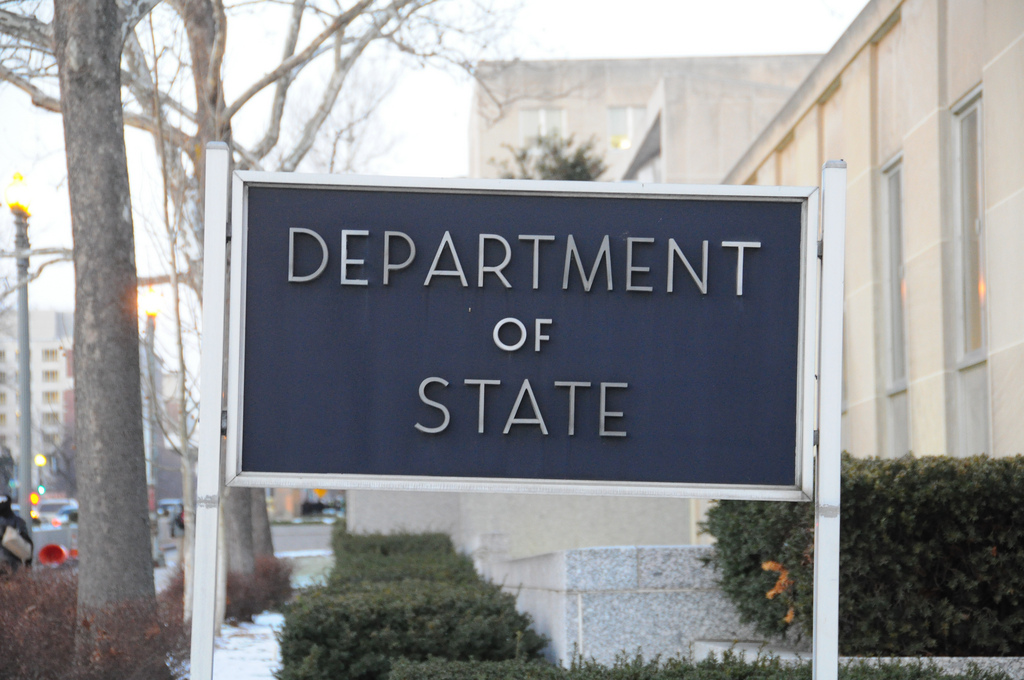Former SOUTHCOM Commanders Warn Against Constraining Foreign Aid to Latin America
"If you don't fund the State Department fully, then I need to buy more ammunition..." -- James Mattis

In a variation on the dreaded and sublimely ridiculous “open letter,” five former USSOUTHCOM Commanders have warned against the predictable consequences of the State Department’s intent to cut foreign aid to El Salvador, Guatemala and Honduras. Marine General Charles Wilhelm, Army Generals Bantz Craddock, James Hill and Barry McCaffrey, and Admiral James Stavridis note relatively modest foreign investment can help create stability and development at the root, removing incentives for migration to the U.S. “We know that if we invest at the scale of the problem, it works because we’ve seen it work in Colombia, where a sustained comprehensive civilian-military effort helped Colombians end the longest conflict in the Western Hemisphere and transform their country into a key security and trading partner,” stated the five commanders.
The Colombian comparison is a bit disingenuous to me. First, the combined total of foreign aid for these three states in 2019 would be about $183M, whereas Plan Colombia cost no less than $10 billion over 15 years, and U.S. outlays to, and within, Colombia over the past 30 years can best be measured in the dozens of billions of dollars. The U.S. has been more committed to Colombia than any other state in Latin America over the past three decades, so the relatively modest aid to these three states isn’t a directly apropos comparison. Still, the point is well taken that foreign aid is a shaping tool of foreign policy, and cutting it off completely reduces U.S. ability to influence policy in these nations. We shouldn’t be surprised at negative outcomes.
Finally, both Stavridis and McCaffrey are noted Trump axe-grinders, and I wonder if their presence on the letter enhanced or diminished its credibility with the administration, assuming the administration was their target audience. More likely, their audience is the foreign policy community at large and the appropriations and oversight committees on the Hill. One notably absent former USSOUTHCOM Commander? John Kelly. Probably a good call. Also notably missing: Generals Peter Pace and Wes Clark.





IMO we should actually be increasing our aid to Latin America just not in the form of our present aid. Too much of present aid is lapped up by elites in the countries and too little is actually used for development. And for goodness sake we should stop supporting their militaries. What do Guatemala or Nicaragua need militaries for other than suppressing their people? The most stable country in Central America is Costa Rica and it hasn’t had a military for 70 years. That’s not a coincidence.
To your point about the potential perception of this being political axe grinding, Butch, it seems like a smart idea to leave Wes Clark out of this.
Beyond that I am pretty much in agreement with Dave (though we may have to accept that funding models always need to accommodate for the “Elite” tax — either that or we need to invest in State to build the on the ground networks to more fairly distribute funding).
@mattbernius:
I’m thinking along the lines of microloans and some of the initiatives that Bill Gates has been involved with.
“If you don’t fund the State Department fully, then I need to buy more ammunition”
With John Bolton at the NSC, that may be a feature, not a bug.
How can anyone argue that it’s a good idea to cut foreign aid to Central American countries…as if that will stop migrants from there from trying to come here…well, I guess in warped trumplogic it makes some kind of sense…
@Dave Schuler:
There’s a lot of debate in NGO circles about the efficacy of microloans. Theoretically they’re a great idea, bur not remotely “turnkey.”
What is clear is that where they are working well (and there definitely are places), they require a lot of infrastructure and oversight to be administered effectively.
Which gets to the point that these programs require a robust administrative infrastructure. That said, the investment in said infrastructure is a drop in the bucket compared to what we spend on defense.
Unfortunately, the present administration’s approach to State is to try to shrink it until it can be drowned in a bathtub.
@An Interested Party:
Well, if you cut aid, you’re taking something away from shitty Mexicans*. And if they do come, you can separate families and put kids in cages.
The needless cruelty is, after all, the point.
I’m not even being facetious here.
* From one of the three Mexican countries, of course,
@Dave Schuler: Easy to say. Hard to do re lapping up.
Insofar as I have direct real-world experience (as a frontier markets investor) with what the economic development programming does, it’s bloody difficult to walk into another country, particularly one under the thumb of a tightly knit oligarchy and avoid said oligarchs grabbing by hook or by crook a piece of the pie.
Focus on entrepreneurship you say as right good naive Americans. But turns out actual entrepreneurship requires access to a certain level of assets, etc. if you want to get beyond feel-good/no-growth carpet-lady stuff. And then it takes expensive, time consuming effort to avoid significant capture…. I actually sit on a few committees for donor backed investment dollars and the oligarchs – PEPs in our jargon – don’t hesitate to try to pressure but more frequently fly under radar via networks of controlled SMEs, etc. Pain in the ass.
@Lounsbury:
Thanks for getting at some of the issues that I was attempting to point at. For microloans to work best, you need to have engaged local administrators and support programs that assist in every stage of the process.
Some of the turmoil leading to instability and people deciding to leave their homes in Central America might be due to the Death Squads that their governments operated against the indigenous people in the recent past. Financing and training of the forces of these governments came from the USA in part.
I wish I could remember exactly where I heard it, but in one of the stories that came out after Trump made his announcement about cutting off all aid, I either read or heard (I believe it was the latter, which means likely via NPR) that in one of the affected countries, a city decided to use aid money to put in street lights. Nighttime crime–particularly the murder rate–dropped in half, with *just* that change. No increased police presence, etc.–just…street lights.
If the money is spent wisely, it could have a real impact. The issue of course is getting around the corruption that is rampant, but I honestly cannot believe that there is anyone who feels like cutting off all aid will do anything but make the difficult and dangerous trek north anything other than MORE likely.
I concur that the comparison to Colombia is problematic, and I also agree with Dave about the problems associated with military investment.
Still, if the administration wants to stop asylum-seekers from these countries, the money it wants to spend on a wall, in the billions could be put to better use in those countries. But such a suggestion presupposes an actual policy goal by this administration and that requires facts not in evidence.
@Steven L. Taylor:
The administration has lots of policy goals, just no idea of how to get there.
If the Trump administration were interested in solving the problems of evil brown people coming from the south by fixing the problems in the Mexican countries that make them want to migrate, prosecuting employers of illegal immigrants, and working with Mexico Prime (if we have Mexican Countries, the one named Mexico must be Mexico Prime) to give the migrants a reason to stop there… we would all be queasy about their motives, but fully support their efforts.
Really, really queasy.
If he tied it to a program to try to recruit Scandinavian entrepreneurs to come here, we would be queasy, and grudgingly support it, with some minor modifications to make it not so clearly and obviously racist.